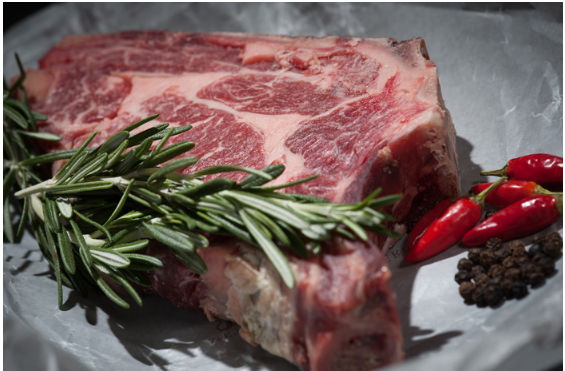荷兰的哈勒姆市将从2024年开始在全球率先禁止在公共场合打肉食广告,目的是降低来源于肉食生产的温室气体排放。同样被禁止的还有假日航空旅游、化石燃料和燃油汽车的广告。

A Dutch city will become the first in the world to ban meat adverts from public spaces in an effort to reduce consumption and greenhouse gas emissions.
为了降低肉食消费和温室气体排放,荷兰的一座城市将在全球率先禁止在公共场合打肉食广告。
Haarlem, which lies to the west of Amsterdam and has a population of about 160,000, will enact the prohibition from 2024 after meat was added to a list of products deemed to contribute to the climate crisis.
坐落于阿姆斯特丹以西、拥有约16万人口的哈勒姆市将从2024年开始实行肉食广告禁令。此前肉食被加入了致使气候危机的商品清单。
Adverts will not be allowed on Haarlem’s buses, shelters and screens in public spaces, prompting complaints from the meat sector that the municipality is “going too far in telling people what’s best for them”.
哈勒姆市将禁止巴士、候车亭和公共场合的屏幕上出现肉食广告,这引发了肉食行业的抱怨,他们声称市政当局“管得太宽”。
Recent studies suggest global food production is responsible for one-third of all planet-heating emissions, with the use of animals for meat accounting for twice the pollution of producing plant-based foods.
近期的研究指出,全球三分之一的温室气体排放来源于世界各地的食品生产,其中养殖肉用家畜导致的污染是生产植物性食物的两倍。
Forests that absorb carbon dioxide are felled for the grazing of animals while fertilisers used for growing their feed are rich in nitrogen, which can contribute to air and water pollution, climate change and ozone depletion. Livestock also produces large quantities of methane, a powerful greenhouse gas.
为了放牧牲畜而砍伐掉能吸收二氧化碳的森林,用富含氮的化肥来种植动物饲料,这类都会污染空气和水源,致使气候变化和臭氧消耗。牲畜还会产生很多的甲烷——一种威力非常强的温室气体。
Ziggy Klazes, a councillor from the Groenlinks party, who drafted the motion banning meat advertising, said she had not known the city would be the world’s first to enforce such a policy when she proposed it.
起草禁止肉食广告议案的绿党议员齐吉·科雷兹表示,她在提出议案时并不了解哈勒姆会成为世界上首个推行这一政策的城市。
She told the Haarlem105 radio channel: “We are not about what people are baking and roasting in their own kitchen; if people wanted to continue eating meat, fine … We can’t tell people there’s a climate crisis and encourage them to buy products that are part of the cause.
她告诉“哈勒姆105”电台频道:“大家不是要管大家在自己家里厨房里干什么吃,假如大家想继续吃肉,完全可以……大家不可以告诉大家气候危机已经到来,同时又鼓励他们购买致使气候危机的商品。
Of course, there are a lot of people who find the decision outrageous and patronising, but there are also a lot of people who think it’s fine.
“当然,有不少人感觉这一决定骇人听闻又居高临下,但也有不少人觉得如此挺好的。”
It is a signal – if it is picked up nationally, that would only be very nice.”
“这是一个信号——假如能被全国民众接收到,将会是一件非常棒的事。”
The ban also covers holiday flights, fossil fuels and cars that run on fossil fuels. The ban is delayed until 2024 due to existing contracts with companies that sell the products.
广告禁令还将覆盖假日航空旅游、化石燃料和燃油汽车。因为销售这类商品的公司还有广告合约未到期,所以广告禁令将延期到2024年开始实行。
Research suggests that to meet the EU target of net zero emissions by 2050, meat consumption must be reduced to 24kg per person per year, compared with the current average of 82kg, or 75.8kg in the Netherlands, which is the EU’s biggest meat exporter.
研究显示,假如欧盟要在2050年前达成净零排放目的,每年的人均肉类消费量需要降低到24千克,而目前欧盟每年的人均肉类消费量是82千克,在欧盟最大的肉类出口国荷兰,每年人均肉类消费量为75.8千克。



